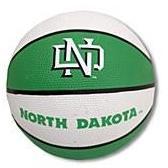
Walsh Hall
Members-
Posts
774 -
Joined
-
Last visited
-
Days Won
2
Recent Profile Visitors
4,007 profile views
Walsh Hall's Achievements
Community Regular (8/14)
-
-
Rare
-
Rare
-
-
Recent Badges
-
2025-2026 ND High School Hockey Thread
Walsh Hall replied to Wilbur's topic in Non-collegiate sports
From the times I’ve been a goal judge I was very surprised at how hard it is. You could easily miss a quick in and out shot. Lots of bodies, movement, etc. I was always hoping that I wouldn’t need to make a call. -
Pats and Seahawks both have middle of the pack O-lines. It seems incredibly difficult for teams to be above average on both sides of the ball. The Rams had the best cumulative ranking this year, followed by the Pats and Bills.
-
Sure seemed like there were issues with puck handling and getting much on the shots.
-
I agree. I also think there will be NLI fatigue after a while. If the boosters pony up at all the schools the end result (W-L's) will be essentially the same for the programs, but with millions of dollars transferring from the boosters to the players. Will folks want to be indefinitely writing mid-to-high 5 figure or 6/7 figure checks, year after year with no return on investment? For extremely wealthy folks I suppose it isn't an issue, but for the typical small business owner it's a different story.
-
Wildcat formation the rest of the way…
-
2025-2026 ND High School Hockey Thread
Walsh Hall replied to Wilbur's topic in Non-collegiate sports
Anyone happen to have a link to a stream for this game? -
2025-2026 ND High School Hockey Thread
Walsh Hall replied to Wilbur's topic in Non-collegiate sports
I wonder if the hockey team was a consideration is remodeling the old HS instead of building a second (Moorhead). -
2025-26 University of North Dakota Hockey Season
Walsh Hall replied to Frozen4sioux's topic in Men's Hockey
For the better models there is not much grey area. That's kinda the whole point, to just use objection measurements instead of the fallible subjective. Factors considered include: Shot location, distance from net, angle to net, shot type (Wrist shot, slap shot, snap shot, backhand, tip-in, wrap-around)., shot trajectory, even strength (5v5), power play, penalty kill, empty net, rush shot, rebound, preceding events, rebound (yes/no), rush (speed of entry), zone entry type, pass type (e.g., cross-slot), scoring chance including screen in front, defensive pressure, net-front presence, one-timer, Goaltender factors including positioning, historical save % from similar locations, etc. From an online site - "Doorstep one-timer on the power play might be 0.35 xG, while a blue-line slap shot through traffic is often just 0.02–0.03. -
2025-26 University of North Dakota Hockey Season
Walsh Hall replied to Frozen4sioux's topic in Men's Hockey
Nice job with the driver, but that's not at all how analytics work. Macro, not micro... You may be cumulatively losing strokes from 120-129 yards when the pin is tucked relative to similar situated golfers. You may be statistically inconsistent with your spin rate with your hybrids. You may be being too aggressive on 25-30 ft putts. It may be beneficial to speed train to gain some distance off the tee as distance trumps accurately over the long run. (scoring average is less from 130 in the rough than 150 in the fairway even after being adjusted for the increase in penalty shots...) I can guarantee you that every D1 golfer uses advanced analytics as do every college and NHL team. I just checked and NHL teams have between 8-12 staff members dedicated just to analytics. Literally no one is saying that the winner of a game should be determined by advanced metrics, but to say they are not useful tools for identifying strengths and weaknesses is rather short-sighted. -
2025-26 University of North Dakota Hockey Season
Walsh Hall replied to Frozen4sioux's topic in Men's Hockey
Do you believe it's foolhardy for a D1 golfer to use advanced analytics to improve their golf game? -
2025-26 University of North Dakota Hockey Season
Walsh Hall replied to Frozen4sioux's topic in Men's Hockey
`I don't understand the hate some folks have for advanced analytics. In the end, all that matters is the final score, but the actual analytics prove extremely relevant information as to how individual players are performing, and how the team is performing. At the macro-level there is a direct correlation between these measurable data points and team success. It seems to me to be a no-brainer to use the available data to identify strengths and weaknesses. -
I can tell you that financial planners, accountants, and attorneys who do transactional work (folks that I work with on a daily basis) fully believe that their jobs will be vastly different in a short period of time. Go on a quality AI system, not even a specialized one, and ask a complex financial, tax, or legal question. Ask it to draft you a purchase agreement, giving it proper prompts. Scan in your medical records or blood test results and have it analysis it for you. Speak with partners in large law, accounting, and wealth management firms. They will tell you that for routine matters AI in vastly superior. A sizeable chunk of the grunt work the youngsters at Ernest & Young used to do is being performed by AI. Go to meetings for these professions. AI is a major discussion point both on and off the record, so to speak. The firms are seeking to capitalize on the AI advancements with the big firms leading the way. It's more prevalent in the large firms, but it's coming and trickling down. Nearly everything a CPA or wealth adviser does is transactional. For lawyers it's not a ton less.
-
That would be one of the very last to go. It's the transactional stuff that is toast in the very near future... estate planning, tax avoidance, real estate transactions, contracts, briefing cases...
-
Accounting and legal is already happening to a large degree. You think a CPA can possess the knowledge of AI? Same goes for medical diagnosis. Import your tax information and have a tax return in minutes. Larger law firms aren't hiring nearly as many fresh attorneys as their research and document drafting can be handled better and more efficiently than a human by legal AI platforms. Type your tax or legal question into a firms AI program and get an answer in seconds without paying for hours of research for a potentially incomplete answer. Need a HR policy, contract, mutual release, etc... done in seconds. The large financial and wealth management firms are developing/have developed AI based models. Any routine transactional work is in trouble, and the VAST majority of the work in the fields I named is routine and transactional in nature.
-
I'm glad (late 40's) that I'll likely be hanging up my working days in the next decade. I feel bad for folks just starting out. So many of the safe "professional" jobs will likely be vastly different in the coming years. Finance, accounting, legal, much of medical can and likely will be replaced. I'd have a hard time encouraging someone to start educating themselves for many of those fields thinking that for the next 40 years they will be needed in the capacity they currently are. Same goes for many more "medial" jobs which can be replaced by automatic processes which can work non-stop.



